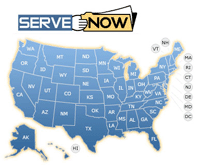Human Rights Watch and a former researcher are fighting subpoenas from a Kansas man accused of participating in genocide in Rwanda, arguing their research notes and informants' identities are protected by the First Amendment and reporters' newsgathering privileges. The international human-rights organization filed a motion on April 5 seeking to quash subpoenas issued to it and Timothy Longman, the former director of its field office in Rwanda. Longman, now director of Boston University's African Studies Center, is the government's expert witness on Rwanda in the Kansas case. Lazare Kobagaya, 83, is charged in federal court in Wichita with fraud and unlawfully obtaining U.S. citizenship in 2006. The government has said its prosecution of Kobagaya is believed to be the first in the U.S. involving proof of genocide. His trial is set for Oct. 12. He faces deportation if convicted. An estimated 500,000 to 800,000 people were killed in ethnic violence in Rwanda between April and July 1994. The Justice Department alleges in its 2009 indictment that Kobagaya lied during naturalization proceedings in Wichita, claiming he lived in Burundi from 1993 to 1995. It claims he was in Rwanda in 1994 and participated in the slaughter of hundreds of people. The subpoena issued to Human Rights Watch seeks research done for a 1999 report, "Leave None to Tell the Story: Genocide in Rwanda," including a chapter on Nyakizu, Rwanda, where some of Kobagaya's alleged crimes occurred. The subpoena sent to Longman also seeks any additional material relating to his expert testimony.![]()
Wednesday, April 07, 2010
Human Rights Watch Fights Subpoenas in Genocide Case
Posted by
Admin
at
10:43 AM
![]()
Labels: genocide trial, Human Rights Watch, Lazare Kobagaya, subpoena
Subscribe to:
Post Comments (Atom)








No comments:
Post a Comment